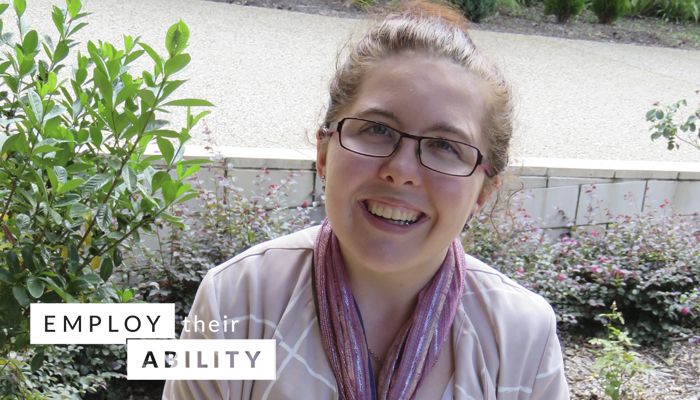How could an inclusive culture benefit your workplace?

Making sure staff have the equipment they need to perform their job safely and productively is a standard Human Resource requirement that ensures that Workplace Health and Safety requirements are met.
Similarly, in some instances, an employee with disability may need workplace modifications to ensure that work is done effectively and comfortably. It can help employers to have workplace adjustment processes to support employees with disability. Employers can also access the support available through JobAccess, for help to access the untapped pool of talent that people with disability represent.
At the University of Southern Queensland (USQ), their Employee Diversity and Inclusion Strategy has meant that workers feel comfortable asking about modifications - and everyone benefits because of it.
For Nikki Andersen - who works part time as a Digital Content and Rights Officer in USQ’s library, and part time as a Diversity and Inclusion Officer with the Human Resources team - the university’s proactive policies have been of great benefit.
“As a person with disability, my experience working at USQ has been overwhelmingly positive. I didn’t disclose my disability at first, but it didn’t take me very long to do so once I realised I had supportive supervisors, and a workplace culture that valued diversity and inclusion,” says Nikki.
Nikki has a rare connective tissue disorder called Stickler syndrome, which affects her vision, hearing, spine and joints. She is visually-impaired, wears hearing aids and lives with chronic pain.
To support Nikki in her role, USQ provided a number of workplace modifications - including a sit-stand desk controlled with a simple button, and a chair suited to a short statured person. When making adjustments like these, it’s important that employers know that they’re not in it alone. The Employment Assistance Fund (EAF) through JobAccess, is available to help with assessments and modifications.
USQ Executive Director Human Resources, Jane Farmer, says there are great benefits to hiring people with disability.
“Diversity helps us reflect and better support the community in which we operate,” she says.
“We are committed to ensuring that all staff and students can participate fully in education and employment without barriers. People with disability bring a diverse range of skills, talents and abilities to our workplace.”
To make sure that staff can effectively participate, USQ works with JobAccess to conduct workplace assessments and has their own policies to guide employees and supervisors through the process of making changes.
“Since I’m visually impaired, my colleagues and supervisors consult with me when they are creating digital content to ensure that it’s accessible. As a result, I’ve been included in many conversations regarding accessibility and universal design across the entire University,” says Nikki.
“I feel valued, and that my voice is heard in these conversations. I’m appreciative to be working with colleagues who are genuinely committed to creating an inclusive environment for everyone. Being open and honest about my disability has encouraged meaningful workplace relationships by involving my supervisors and colleagues in the learning of new skills and ways of thinking,” she says.
An employee support network, named the AccessAbility network, raises awareness and gives employees a forum to discuss issues relating to disability, accessibility and mental health.
The culture at USQ is open, supportive and accessible to staff - which is largely due to their proactive and inclusive policies. To find out more about developing policies for your own organsiation, visit https://www.jobaccess.gov.au/employers/developing-disability-action-plan
Last updated:
